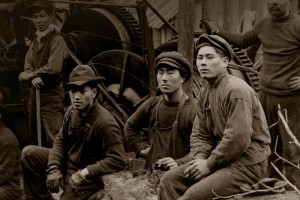In order to perform surgeries, doctors and nurses require medical supplies, including surgical instruments, heart monitoring machines, and anaesthesia equipment. And these supplies don't magically appear at the hospital: they come from a distribution warehouse. At my own warehouse, we carry sodium chloride and potassium chloride injections; sterile water for irrigation; hemodialysis solutions; as well as drainage bags, blood pumps and many more medical products.
Indeed, a whole group of warehouse workers, including receivers, pickers, checkers and loaders make sure, on a daily basis, that these supplies get to hospitals and medical centres across the country. While our work may not be as skilled or knowledge-intensive as that of doctors and nurses, medical professionals can't do their jobs until we do ours at the warehouse.
CRUCIAL WORKERS, PRECARIOUS CONDITIONS
Just how important we are to the healthcare system was brought home to me when some of our staff launched a union campaign a few years ago. Our pay was low, in comparison to similar businesses. Temps competed for only a few full-time positions, creating a highly competitive and conflict-filled work environment. Those who were finally hired often had waited for upwards of one year. There was no way to counter the arbitrary authority of the managers.
Management simply went crazy at our effort to organize. The company immediately bombarded us with propaganda, focussing first on what they called "false union promises." One of the information sheets, called "Facts You Should Know About Unions," stated: "If a union gets in, there is no guarantee what you will be paid. Pay levels, benefits, could go up, could go down, or could stay the same. . . . It all depends upon what the company can afford to pay."
UNIONS: ACCORDING TO MANAGEMENT
Another information sheet, this one directed at the temporary workers, stated that the union "is spreading the false promise that if they get in, you'll get large wage increases. That is not reality." We were all given a pad of "Warranty Coupons" that we were supposed to "redeem" with the union. One of these coupons read: "I Guarantee: you will get a pay raise of ____cents an hour in the very first contract we get with your company."
Company propaganda also declared that unions actually harm workers, saying: "Union dues will cost you anywhere between $400 to $600 per year -- and as you know, you won't get anything more than you already have." We were told how we would also lose money through strikes. The company handout to the temps stated: "Strikes are a way of life with a union," and: "You and your family must understand that when you strike, your pay stops, your health insurance stops and all other benefits stop, and you receive no employment insurance."
As well, we were made to believe we would lose power, by being told: "If you become unionized, when it comes to dealing with the company the union will make most of your decisions for you. You will have no control over any grievances you have with the company."
EXPLOITING EMPATHY
The last angle of attack by the company during the union campaign was, perhaps predictably, guilt. One of their so-called facts stated that: "A strike would impact the public that our customers serve, and deprive them of critical medical supplies. This would affect how you and the company are looked at by the community."
Expanding on this theme in their letter to the temps, the company stated: "It is important to remember that our customers don't just turn a package over to us for delivery -- they turn over their entire inventory and supply chain. Think about how a strike would affect the people who rely upon the timely delivery of our customer's products each and every day -- people like you and your family."
FEAR AND VOTING
Ultimately, the company won and the union drive was defeated. Many of the temporary workers voted against the union, fearing they might get dropped, as that would be easy for the company to do. Moreover, a good number of them were students who feared a strike could wreck the possibility of any savings for tuition, which is so high these days.
The few full-time company staff who voted against the union seemed to be swayed more by the "company as family" argument, expressed as: "Unions change a friendly place where people work cooperatively into a bitter 'us versus them' environment."
There was no opportunity for the union to counter company propaganda; it was completely shut out of the facility. However, the company couldn't keep one truth from being learned, through the union drive: in the company's panic and anger, we saw just how important our role was in keeping the company afloat, and in helping to maintain our country's healthcare system.
Glen Harper works at a non-unionized warehouse north of Toronto.














